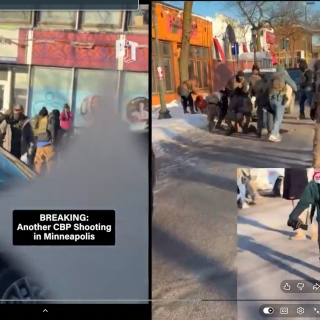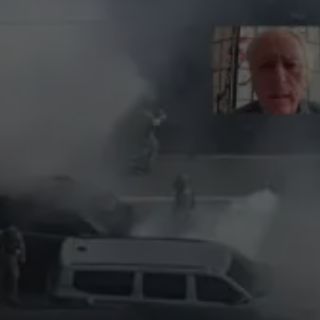Advertisement
Organizers are gearing up for a march that will go from Los Angeles to Washington DC to call attention to the need for serious, immediate action to stave off a looming, deadly climate change catastrophe.
The Great March for Climate Action is the brainchild of former progressive Iowa state legislator turned talk show host Ed Fallon, who identified the climate crisis as the most serious challenge facing humanity. Eight organizers have been hired to oversee the March and its logistics.
Called the Climate March for short, it starts, appropriately, on March 1, 2014. Marchers will undergo eight months of heat, cold, wind, sun, rain, mountainous terrain, blisters and insects—all for an incredibly rewarding, life-changing adventure meeting and educating people and policymakers along the way. Marchers will walk around 15 miles per day and tent camp at night. The distance is very doable in comparison with a 20 or more mile per day walk.
The March will go through Phoenix, Albuquerque, Taos, Denver, Omaha, Des Moines and Chicago. The route will go through Northwest Ohio to Toledo and along Lake Erie to Cleveland and then to Youngstown. From there marchers will go to Pittsburgh and on to Washington DC, arriving on Nov. 1. Marchers will welcome visitors at their tent camps and give talks in local towns that they pass through. People are encouraged to walk with the March for a day, a week, a month or, of course, the entire way. An easy way to participate is to walk with the march as it passes close to you. Marchers from a number of countries worldwide are already registered.
Support vehicles are being rounded up to carry supplies, tents and food. Marchers participating for more than one day are being asked to raise or donate $20 per day to pay for expenses.
The March has been endorsed by many organizations and prominent individuals including 350.org and climatologist James Hansen.
Ed Fallon coordinated the Iowa logistics for the 1986 Great Peace March for Global Nuclear Disarmament, when 700 people walked from Los Angeles to New York City and then to Washington.
Fallon says of the March, “We think this is a tool that will help mobilize people to understand the problem and to do more about it. Climate needs to become the defining issue of this century.”
Climate change threatens first the poorest and most marginalized people and increases the likelihood of wars for increasingly scarce resources. Climate change will increase the likelihood of more “failed states” — nations that cannot provide basic services and security to their citizens. Questions are being posed as to whether institutional control will be able to continue over basic infrastructure and human-created threats such as toxic waste dumps and radioactive nuclear waste which will be dangerous for eternity.
To find out more about the Great March for Climate Action, to register to walk, or to find out when the March will be coming through your state, visit climatemarch.org. At the website you can subscribe to weekly progress updates or volunteer. You can also call 513-5-WE-WALK (513-593-9255) or email info@climatemarch.org.



